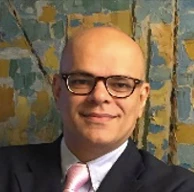Listening to Dr. RK Pachauri deliver the first Robert Goodland Memorial Lecture at the World Bank last month, I could not help thinking of Dumbledore – the very wise headmaster of Hogwarts, the school where the drama in Harry Potter’s life unfolds. If only Pachy, as his friends call him, had Dumbledore’s magical powers, climate change would not be a problem. Alas, he is only human. But a very wise and accomplished one who heads the IPCC that just issued its fifth assessment report on climate change, and that is what he focused his lecture on.
Two things stuck in my mind as I listened to him.
First, it became evident from listening to him that the distinction between mitigation and adaptation to climate change is somewhat artificial, and if we are to address the problem of climate change we need to start thinking of mitigation and adaptation in tandem – in one common box instead of two separate boxes, as we tend to do. He made this point with the very sobering message that we are already locked into a certain degree of global warming and even very stringent mitigation action today will not be enough to stop the impacts of climate change for several decades; hence human society will have to adapt. However, we will reach certain tipping points beyond which adaptation will not be possible at all; so we have to mitigate. Since mitigation reduces the rate and magnitude of warming, it also increases the time available for adaptation, potentially by several decades. He made a pitch for the World Bank to ensure that the development policies and programs we support come to grips with combining mitigation and adaptation.
Second, he stressed that the intersection of mitigation and adaptation with other societal goals can strengthen the basis for climate action. With a focus on meeting multiple objectives, increased co-benefits, and reduced adverse side effects, climate action can become much easier to undertake. Dr. Pachauri highlighted that the costs of action would be insignificant if one took the co-benefits into account – such as energy savings, reduced air pollution and better health, more efficient water and energy use, and job creation, among others.
Coming out of the lecture, I could not help thinking that what he said should not be that difficult for us to put into practice. We certainly do not need to go to Hogwarts for that.
A big thanks to Dr. Pachauri for his very simple and succinct messages on making climate action more effective and efficient.


Join the Conversation